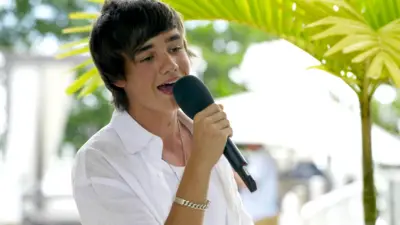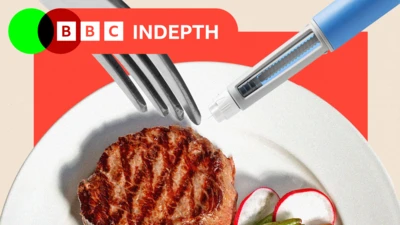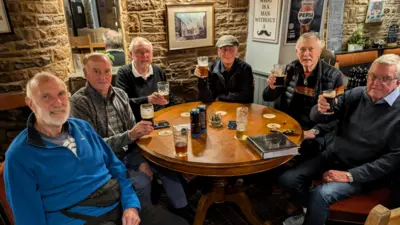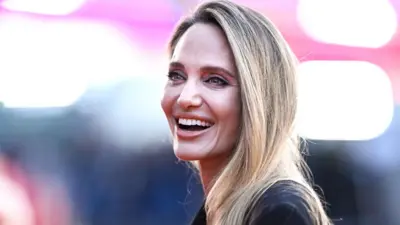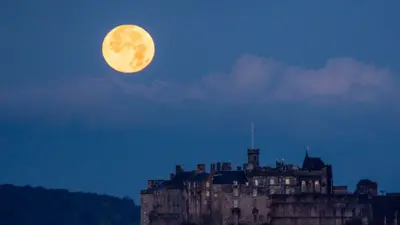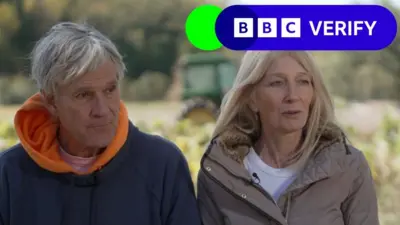We've updated our Privacy and Cookies Policy
We've made some important changes to our Privacy and Cookies Policy and we want you to know what this means for you and your data.
Parliament resumes with MPs jostling for position
Image source, UK Parliament
- Author, Mark D'Arcy
- Role, Parliamentary correspondent
Almost without missing a beat normal parliamentary politics has resumed.
With a variety of plum internal posts up for grabs, the chronic campaigners of Westminster are already visibly on manoeuvres, with assorted candidates for the three deputy speakerships laying out their wares, and battening onto any Commons newcomers who cross their path.
The permanent deputy speakers (three temporary deputies were named on Thursday) will be elected on Wednesday 8 January, but there are other glittering prizes on offer.
The chairs of select committees will be elected rather later, and the prime minister will have to appoint a new chair for the parliamentary intelligence and security committee, following the defeat of Dominic Grieve (who probably would not have been re-appointed, anyway). Will former Foreign Secretary Jeremy Hunt get the call?
A number of select committee chairs lost their seats - Sarah Wollaston, Frank Field and Mary Creagh - but others may not be confident of being re-elected to their chairs by MPs.
The political balance of the new Commons may result in some being rejected, and so there is much anxious sniffing of the new atmosphere, with several of the previous crop of chairs wondering whether it might be better not to stand again, if they face defeat.
Not all chairs are created equal
The elections probably won't take place for a while. First of all the prime minister is said to be mulling over changes to the machinery of government, which could see several departments merged or abolished.
For a start, the Department for Exiting the EU is to be wound up at the end of January, on Brexit day. Since most of the select committees are supposed to shadow departments, they have to wait on that.
Second, the committee chairs then have to be divided up amongst the parties according to their parliamentary presence - with the Conservatives and SNP getting extra chairs, and Labour losing a few.
There's a bit of negotiation around this, because not all chairs are equally important or prestigious. Labour will be keen to hold onto the BEIS committee (or its successor) as the second economic committee, after the Treasury committee, but may find it hard to hold on to others.
Once the carve-up is agreed, MPs will vote on who is, for example, the best Conservative to chair the treasury committee.
This is where it gets interesting - because if there are several contenders, each backed by a group of Conservatives, the winner will need the votes of the other parties.
This was the factor that, in the previous Parliament, tended to hand the committee chairs to those who were likely to be most troublesome to their own party. Hence Frank Field at work and pensions and Sarah Wollaston at health.
For Conservatives looking to choose between Labour candidates for chairs of a committee, this is a more interesting exercise. They don't know who will be the leader they are hoping to discomfort - and some of the possible candidates may also be seeking their party leadership.
Other current chairs may be hoping to join a new shadow cabinet, after exile in committee land.
Labour MPs might be keen to back remain/soft Brexit Conservatives, and they have a number of ex-ministers with poor prospects of a recall to government to choose from. Tobias Ellwood, Steve Brine and others might fancy a new career on the committee corridor.
The difference is, in the new House of Commons, with a large Conservative majority, it will no longer be possible for a Tory rebel, with a handful of chums on their own side, to be installed by the opposition parties.
They will need a decent level of backing from their party colleagues, to get elected.
Top Stories
More to explore
Most read
Content is not available
